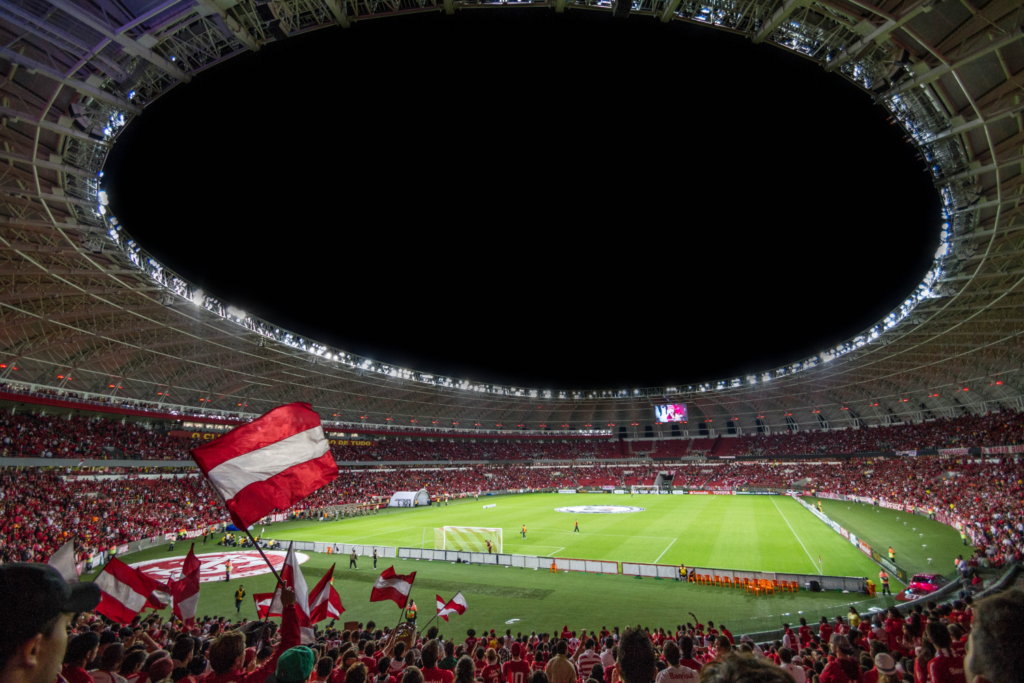Soccer Friendlies: Friendly in Name, But Still Competitive On The Field
Soccer friendlies are games between two teams in a non-competitive match. This match occurs outside of a competition or recognized tournament and often is between teams from different regions of the world.
These fixtures are called friendlies because of the uncompetitive nature of the match, referring to the fact that they do not count towards league games or standings, rather than the competitiveness on the field. However, they can still be quite thrilling and are not always so friendly.

History of Soccer Friendlies
Before the creation of league systems, friendlies were the most common type of soccer match. Teams traveled worldwide, playing friendly matches against local sides and spreading the sport’s popularity. London-based side Corinthian FC, one of the biggest clubs when the sport was founded, played friendly competitions on nearly every continent.
Friendlies were also crucial for the game internationally. The first game between two nations, Scotland and England, in 1872, was an exhibition game, as were most of the international matches that followed. Three years later, the United States played its first international match, a friendly against Canada.
Friendly Soccer Game Rules
While the rules may change from game to game, most follow the same general guidelines.
In most international friendly football matches, teams may make up to six substitutions for the fixture to be a recognized friendly (more on that later). This differs from the usual three substitutes allowed in standard games, which was later changed to five during the pandemic. Additionally, the competition typically ends after 90 minutes, with few exceptions. Friendly tournaments, for instance, may have matches end in penalty kicks if they are still tied and a winner is needed to advance to the next round.
Club friendlies are less strict, as they usually don’t follow any guidelines. Teams may use as many substitutions as they like, and teams can decide whether or not they wish to do penalty shoot-outs in the case of a tie.
Additionally, clubs often participate in exhibition tournaments, playing several matches, with the best record being named the winner. Arguably one of the most famous friendly tournaments is the Audi Cup, hosted by German club Bayern Munich — not to be confused with the Audi Summer Tour, an exhibition tournament Bayern Munich plays in the United States and China.
Why Soccer Club Friendlies Are Important
While to some, they may seem trivial. These matches benefit both clubs and players.
The main benefit of exhibition games is to give lesser-known players a chance. Without the pressure to win or do well in these football matches, younger players are often put straight into the starting eleven or appear as a substitute. This is one of the reasons football club exhibition matches often have unlimited substitutions and why international friendlies allow for more substitutions than usual.
Lionel Messi, one of the greatest players of all time, made his debut with FC Barcelona as the third of five substitutes in a friendly in 2003. His impressive performance helped him become a key figure for the club.

Friendlies can also have strong financial implications. European clubs play pre-season preparation matches worldwide to gain popularity and increase their fan base internationally. Southeast Asia, the Middle East, and the United States have become hotspots for these tournaments, with bigger, more well-known clubs trying to gain a foothold in these relatively untapped markets.
For local soccer teams, these exhibition matches present chances to earn better ticket sales and, potentially, prize money for agreeing to face off against bigger sides. In addition, club friendlies also give teams a chance to showcase their top players and earn higher transfer fees, as Portuguese side Sporting Lisbon did in 2003 when then-18-year-old Cristiano Ronaldo dominated a friendly against his future club, Manchester United.
In many countries, first-division teams often have preseason-friendly games against lower-division teams. These games are typically held at the lower division team’s stadium, and the proceeds go to the home football club. It allows larger club teams to give back to the soccer community.
Why International Friendlies are Important
Friendlies have a different level of importance internationally. FIFA ranks all international teams, and these rankings can determine which countries face in tournaments or whether they advance to the next rounds of qualification for these tournaments. While rankings are based on a combination of various games, they are heavily influenced by the results of test matches, which count towards the international rankings.
Teams often use friendly soccer games to improve their ranking, scheduling against inferior teams to win and move up in the rankings. This is why teams typically make six or fewer substitutes in international friendly fixtures. They want the games to be internationally recognized so that they can help them in the rankings.
Additionally, exhibition games prepare teams ahead of major tournaments, such as the World Cup, allowing players to work together and the manager to see how the players react to each other on the pitch. Teams will often play an opposition similar in style to the one they will face in their next official game.
National teams can also use friendlies to help recruit dual nationals. If a player is eligible to play for more than one country, they may get a call-up in friendlies. Players can make appearances for a country and later switch nationalities, making it a risk-free option for players trying to decide which nation they should play for.

All-Star, Testimonial, and Other Types of Exhibition Football Games
While most soccer friendlies occur between two nations or two clubs, there are a few additional types of test fixtures.
One of the more popular types of exhibition games is an All-Star game. This involves selecting the best players from a league, nation, or specific group of teams and building a team of those stars. All-Stars can face off against any team, whether another All-Star team or a typical club.
The American MLS All-Star team is one of the most famous examples: over the years, the selected All-Star team has faced European clubs, a Mexican Liga MX All-Star team, and even the United States national team. All-Star teams are also common throughout Asia.
Testimonial matches or testimonials are friendlies hosted to honor retiring players.
These often are very similar to All-Star games: the retiring player selects some of their favorite teammates and plays alongside them, often against their former club, a rival or powerhouse club, or another group of their former teammates. For example, Wayne Rooney played a testimonial in 2016 between his first team, Everton, and his more successful team, Manchester United.
Charity matches can be another form of friendlies and are formatted very similarly to All-Star games. Specific friendly events raise awareness for a cause, with the proceeds going toward charities related to that cause. While the teams and players can vary, typically, they are made up of a group of all-stars, former players, or even celebrities.
Final Thoughts
Friendlies may lack some of the glamors of league and cup matches, but they still can be quite significant. Whether it’s the opportunity for younger players to play for the first time or for retiring players to step on the field for the last time, there’s always a reason to watch friendlies.
In today’s game, much emphasis has been put on winning. However, the fans are still at the heart of the game, particularly for friendlies. Generations of aspiring soccer players have been inspired by watching legends facing their local teams in friendly matches.
For many, it may be their only chance to watch their favorite side live. Every friendly can be very important for this reason, even if the result on the pitch is not.






